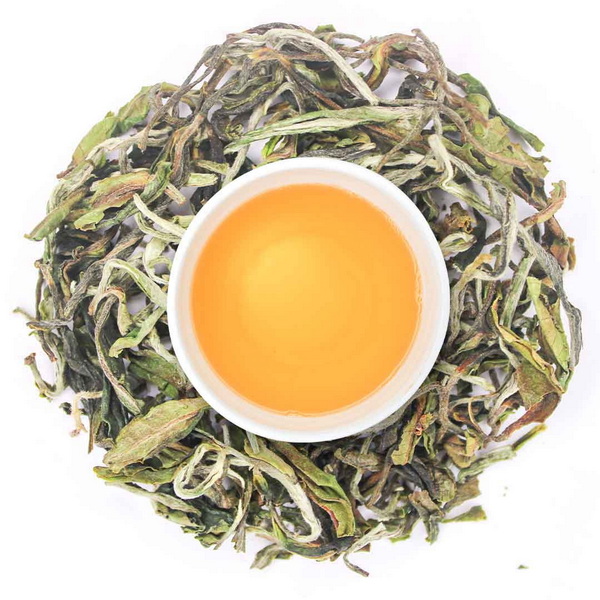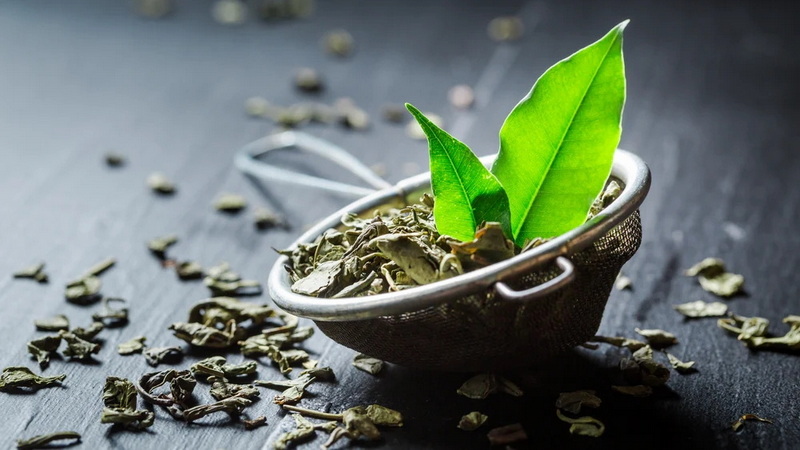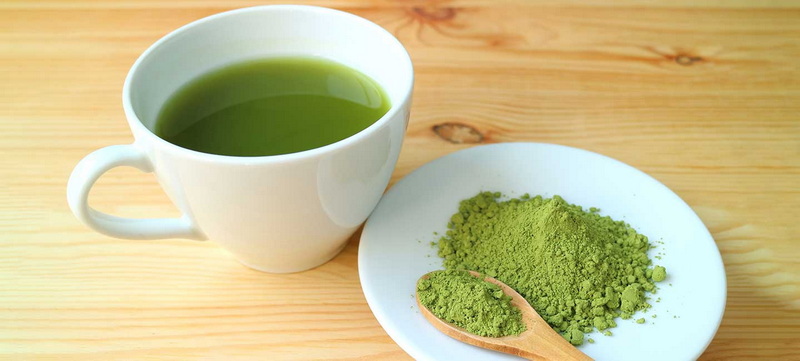Content Menu
● Understanding Green Tea Extract
>> Forms of Green Tea Extract
● Health Benefits of Green Tea Extract
● Recommended Dosage of Green Tea Extract
>> Factors Influencing Dosage
● Potential Risks and Side Effects
● How to Take Green Tea Extract Safely
● Incorporating Green Tea Extract into Your Routine
● Conclusion
● FAQ
>> 1. What is the maximum amount of green tea extract I can take daily?
>> 2. Can I take green tea extract on an empty stomach?
>> 3. Are there any interactions between green tea extract and medications?
>> 4. How long does it take to see results from green tea extract?
>> 5. Is green tea extract safe during pregnancy?
● Citations:
Green tea extract (GTE) has gained popularity for its numerous health benefits, including weight management, improved brain function, and enhanced cardiovascular health. However, determining the appropriate dosage can be complex due to varying recommendations based on individual health goals and potential side effects. This article will explore the recommended dosages of green tea extract, its benefits, potential risks, and frequently asked questions.

Understanding Green Tea Extract
Green tea extract is derived from the leaves of the Camellia sinensis plant and contains concentrated amounts of polyphenols, particularly epigallocatechin gallate (EGCG), which is known for its antioxidant properties. GTE is available in various forms, including capsules, powders, and liquid extracts.
Forms of Green Tea Extract
- Capsules: These are one of the most common forms of GTE. They provide a convenient way to consume a specific dosage without the need for preparation.
- Powders: Green tea powder can be mixed with water or smoothies. This form allows for more flexibility in dosage but may require more effort to prepare.
- Liquid Extracts: These are concentrated forms that can be added to beverages or taken directly. Liquid extracts may have a quicker absorption rate compared to capsules.
Health Benefits of Green Tea Extract
1. Rich in Antioxidants: GTE is high in antioxidants that help combat oxidative stress by neutralizing free radicals in the body. This property is crucial in preventing chronic diseases such as cancer and heart disease.
2. Weight Management: Studies suggest that GTE can aid in weight loss by enhancing metabolic rate and fat oxidation. A study published in the American Journal of Clinical Nutrition found that participants who consumed GTE experienced greater fat loss compared to those who did not.
3. Heart Health: Regular consumption may reduce cholesterol levels and improve overall cardiovascular health. Research indicates that GTE can lower LDL cholesterol levels and improve endothelial function, contributing to better heart health.
4. Brain Function: The catechins in green tea extract have been linked to improved cognitive function and reduced risk of neurodegenerative diseases. Some studies suggest that GTE may enhance memory and attention span.
5. Skin Health: GTE can improve skin elasticity and hydration, making it a popular ingredient in skincare products. Its anti-inflammatory properties may also help reduce acne and other skin conditions.
6. Blood Sugar Regulation: Emerging research indicates that GTE may help regulate blood sugar levels and improve insulin sensitivity, which is beneficial for individuals with type 2 diabetes.
7. Cancer Prevention: Some studies suggest that the antioxidants in green tea extract may help protect against certain types of cancer by inhibiting tumor growth and reducing inflammation.
Recommended Dosage of Green Tea Extract
The optimal dosage of green tea extract varies depending on individual health goals and existing conditions. Here are some general guidelines:
- For General Health: A typical daily dose ranges from 250 mg to 500 mg of GTE, which provides approximately 100 mg to 300 mg of EGCG.
- For Weight Loss: Higher doses between 500 mg to 1,000 mg per day may be effective for weight management over extended periods (8-12 weeks). Some studies have shown that participants who took higher doses experienced more significant weight loss results.
- For Cognitive Enhancement: A daily intake of about 336 mg of EGCG has shown benefits in improving memory and cognitive function.
- For Heart Health: Doses around 379 mg to 714 mg of GTE have been associated with improved lipid profiles and lower blood pressure.
Factors Influencing Dosage
Several factors can influence the appropriate dosage of green tea extract for an individual:
- Age: Older adults may require different dosages compared to younger individuals due to metabolic differences.
- Weight: Body weight can affect how supplements are metabolized; heavier individuals may require higher doses for similar effects.
- Health Status: Individuals with certain medical conditions or those taking medications should consult a healthcare provider for personalized dosage recommendations.

Potential Risks and Side Effects
While green tea extract is generally safe for most people when taken at recommended doses, excessive intake can lead to adverse effects:
- Liver Toxicity: High doses (≥800 mg/day) may cause liver damage in some individuals. It is crucial to monitor liver function if consuming high doses regularly.
- Caffeine Sensitivity: GTE contains caffeine, which can lead to side effects such as restlessness, insomnia, or increased heart rate if consumed excessively. Individuals sensitive to caffeine should consider decaffeinated options or lower doses.
- Gastrointestinal Issues: Some people may experience nausea or digestive discomfort when taking green tea extract on an empty stomach.
- Drug Interactions: GTE may interfere with certain medications, including blood thinners and antidepressants. Consulting with a healthcare provider before starting supplementation is advisable.
How to Take Green Tea Extract Safely
To minimize risks associated with green tea extract:
- Start Low: Begin with a lower dose (250 mg) and gradually increase based on tolerance and desired effects.
- Take with Food: Consuming GTE with food may help reduce gastrointestinal discomfort and lower the risk of liver toxicity.
- Stay Hydrated: Drinking plenty of water while taking supplements can help mitigate potential side effects such as dehydration or digestive issues.
- Consult a Healthcare Provider: Always consult a healthcare professional before starting any new supplement regimen, especially if you have underlying health conditions or are taking medications.
Incorporating Green Tea Extract into Your Routine
Integrating green tea extract into your daily routine can be simple:
- Morning Routine: Start your day with a capsule or powder mixed into your smoothie or breakfast bowl for an antioxidant boost.
- Pre-Workout Supplement: Taking green tea extract before exercise can enhance fat oxidation during workouts, potentially improving performance and results.
- Afternoon Pick-Me-Up: Instead of reaching for coffee or sugary snacks, consider taking a dose of green tea extract for sustained energy without the crash associated with caffeine.
Conclusion
Green tea extract offers numerous health benefits when taken at appropriate dosages. For most individuals, a daily intake ranging from 250 mg to 800 mg is generally considered safe and effective. However, it is essential to be aware of potential side effects and consult a healthcare professional before starting supplementation. By understanding how much green tea extract you can take safely, you can harness its benefits while minimizing risks.

FAQ
1. What is the maximum amount of green tea extract I can take daily?
The maximum recommended daily intake is generally around 800 mg of EGCG or approximately 1,600 mg of total catechins from supplements to minimize risks of liver toxicity.
2. Can I take green tea extract on an empty stomach?
It is not advisable to take green tea extract on an empty stomach due to the potential risk of gastrointestinal discomfort and liver toxicity.
3. Are there any interactions between green tea extract and medications?
Yes, GTE can interact with certain medications like blood thinners and antidepressants; consulting a healthcare provider before use is recommended.
4. How long does it take to see results from green tea extract?
Many studies indicate that benefits can be observed within 8-12 weeks of consistent supplementation.
5. Is green tea extract safe during pregnancy?
Pregnant women should consult their healthcare provider before taking green tea extract due to its caffeine content and potential effects on folic acid levels.
Citations:
[1] https://www.canada.ca/en/health-canada/services/food-nutrition/public-involvement-partnerships/notice-modification-list-permitted-supplemental-ingredients-permit-use-green-tea-extract-supplemental-ingredient-foods/document.html
[2] https://www.elo.health/articles/green-tea-extract-supplements/
[3] https://www.alamy.com/stock-photo/green-tea-extract.html
[4] https://www.youtube.com/watch?v=fkASB21-xrQ
[5] https://www.healthline.com/nutrition/10-benefits-of-green-tea-extract
[6] https://www.webmd.com/vitamins/ai/ingredientmono-960/green-tea
[7] https://www.youtube.com/watch?v=A7tjlpYdUGU
[8] https://www.drugs.com/npp/green-tea.html
[9] https://www.youtube.com/watch?v=eMuE16vLV_s
[10] https://consensus.app/questions/much-green-take-daily/
[11] https://www.peacehealth.org/medical-topics/id/hn-2102007
[12] https://examine.com/supplements/green-tea-extract/
[13] https://pubmed.ncbi.nlm.nih.gov/29580974/
[14] https://www.eposrl.com/en/magazine_pt/new-regulation-on-green-tea-extracts-containing-egcg/
[15] https://www.healthline.com/nutrition/egcg-epigallocatechin-gallate
[16] https://www.istockphoto.com/de/bot-wall?returnUrl=%2Fde%2Fphotos%2Fgreen-tea-extract
[17] https://www.webmd.com/vitamins/ai/ingredientmono-960/green-tea
[18] https://www.shutterstock.com/search/green-tea-extract
[19] https://www.vecteezy.com/free-videos/green-tea-extract






























